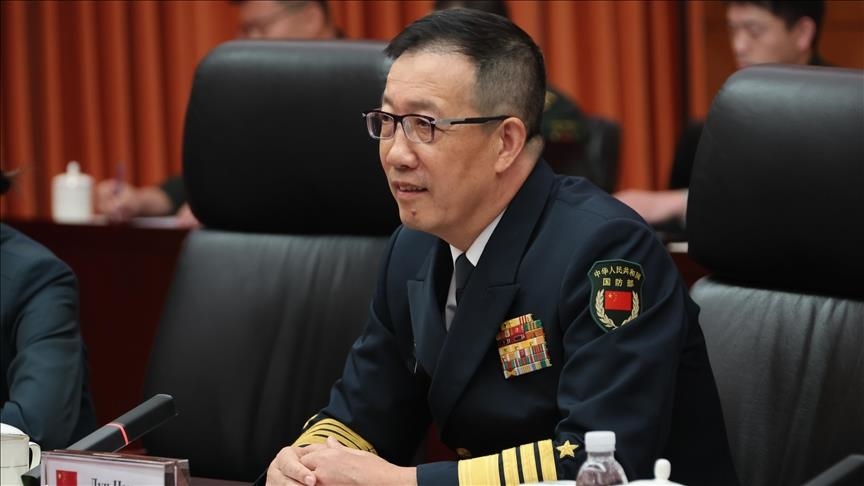Dong Jun says China willing to work with armed forces of regional countries to strengthen concept of shared destiny, promote systematic maritime cooperation
China’s Defence Minister Dong Jun Thursday met naval chiefs from African nations, stressing the “concept of shared destiny.”
Dong met the visiting naval commanders from Nigeria, Gabon and other nations in Shanghai, according to the Chinese Defence Ministry.
The visiting heads of delegations from 18 countries are attending the 2nd Seminar on the Security Situation in the Gulf of Guinea, organized by Chinese navy.
“The Gulf of Guinea is the common home of regional countries and an important link for China and Africa to strengthen exchanges and cooperation and build a community with a shared future for the ocean,” Dong said.
He said China is “willing to work with the armed forces of regional countries to strengthen the concept of shared destiny, shoulder the common responsibility of maintaining security, promote more systematic maritime cooperation, and continue the traditional friendship of sincere solidarity.”
“It is hoped that all parties will work together to … benefit the people of the region, and actively contribute to the construction of an all-weather China-Africa community with a shared future in the new era,” said the Chinese defence chief.
Dong’s appearance at the seminar comes after UK-based daily Financial Times last week reported that the Chinese defence minister was under probe.
Beijing rejected the reports, calling it unfounded and that of “shadow chasing.”
The Defence Ministry, however, later said that a top Chinese military general was being probed for a “serious violation of rules” and has been suspended from his position.
Miao Hua, one of six members of the Central Military Commission (CMC), is undergoing investigation for suspected serious violation of rules, the ministry said.
“Serious violation of rules,” in Chinese state jargon, usually refers to cases of graft. Dong is not a member of the CMC. By Riyaz ul Khaliq, Anadolu Agency






